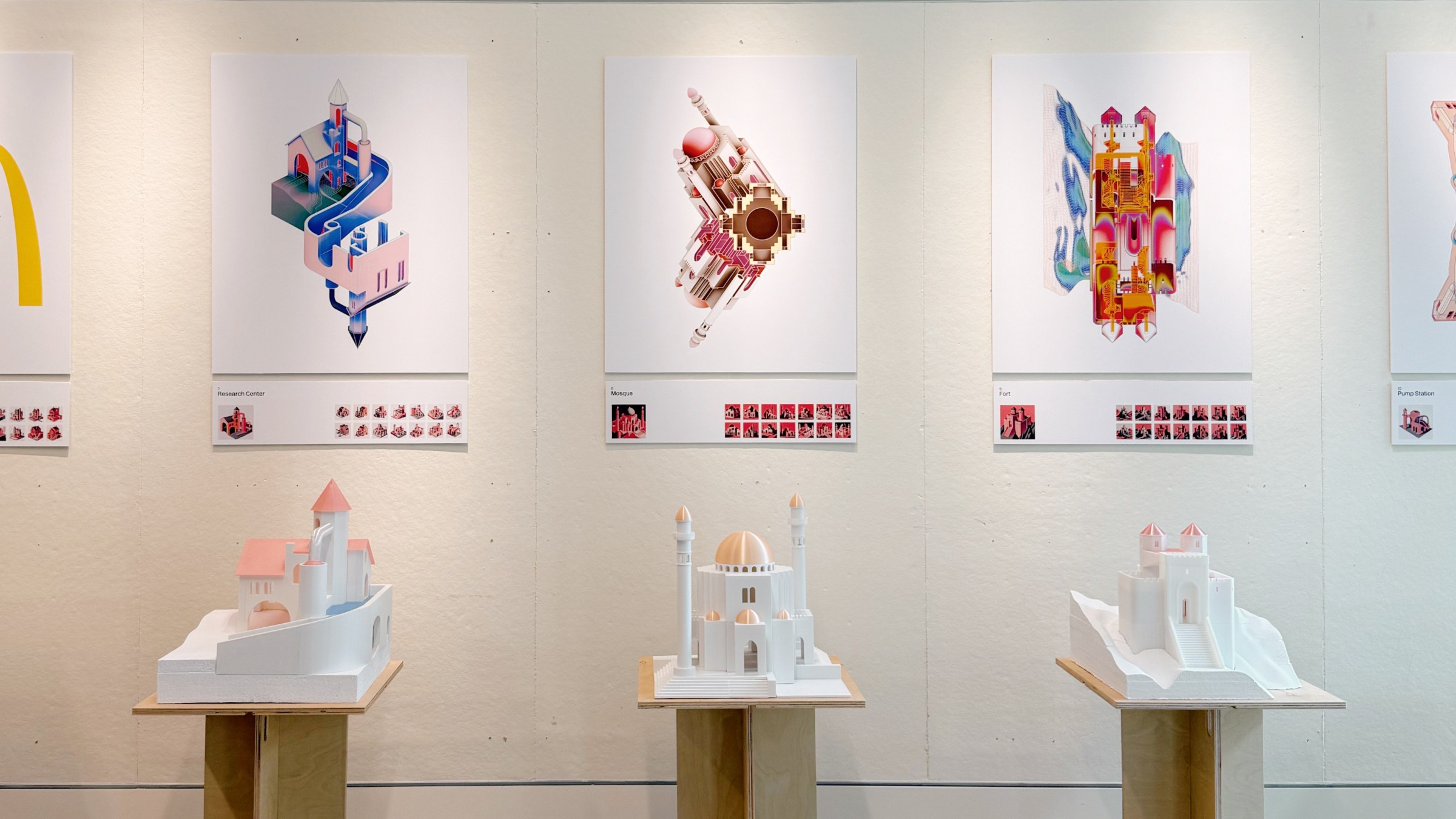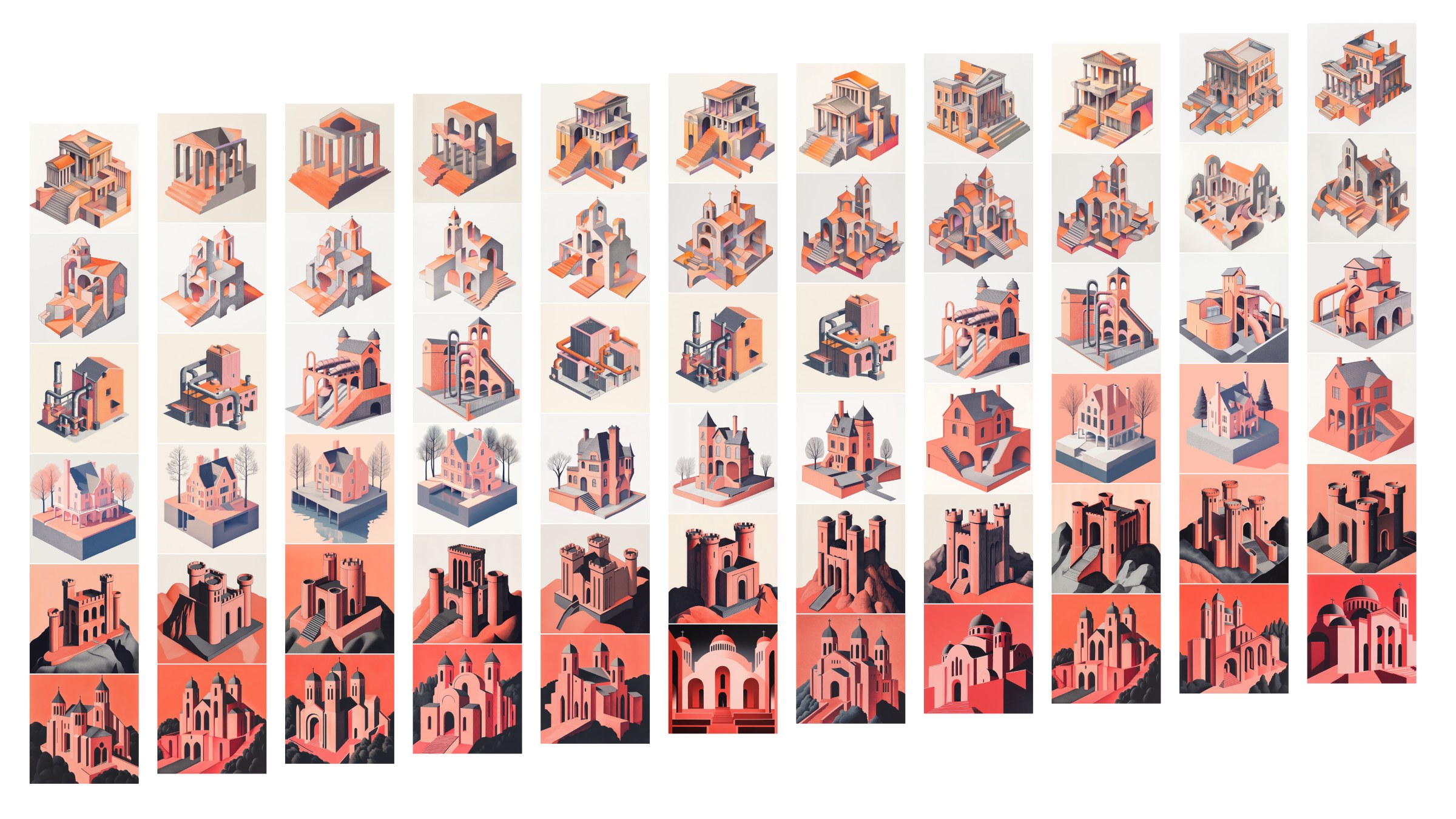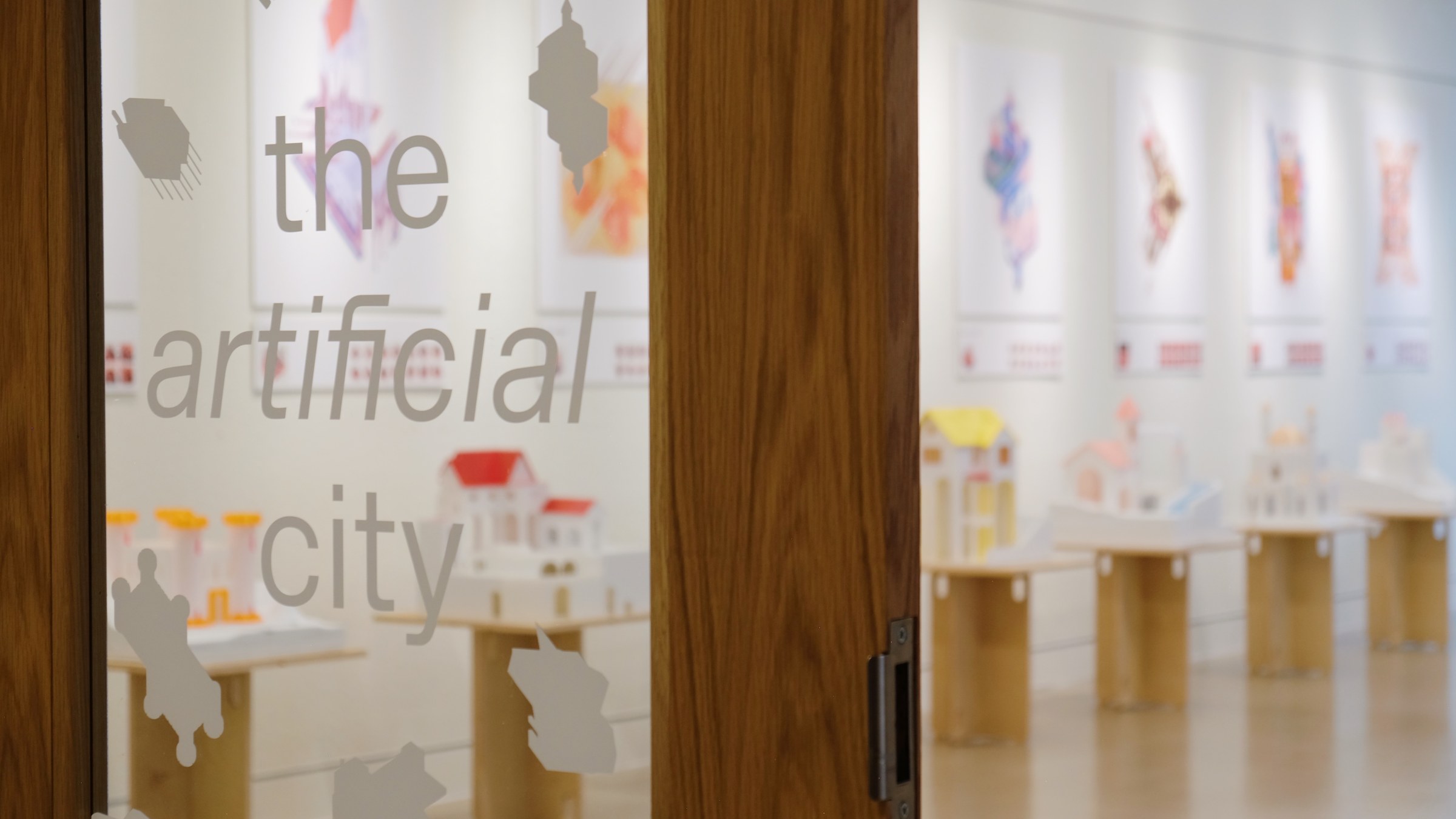Exhibition: The Artificial City

October 6 to November 15th, 2025
Richardson Memorial Hall Gallery
This event is open to the public.
The Artificial City is on exhibit at Richardson Memorial Hall Gallery until November 15!
The Artificial City is a design project that investigates the use of Al image generation as a creative method for producing architectural typologies, rethinking authorship, and exploring new modes of formal speculation. The project centers on the use of Midjourney to iteratively prompt, document, and analyze hundreds of urban fragments. Each Al-generated image becomes a starting point for design: abstract, partial, and open to interpretation. Through curation and visual interventions, these fragments are translated into physical and digital forms, forming the foundation of a speculative city whose logic is shaped less by urban planning than by emergent formal variation.

The project began with a simple question: if Al can generate countless forms at once, how might the designer work with this one image at a time methodology. Rather than treating Al tools as efficiency engines for solving pre-set problems, The Artificial City embraces slowness, ambiguity, and interpretation. Images are not final products, they are
prompts for future modeling, drawing, and recontextualization. This approach resists the idea that generative Al is merely a shortcut in the design process, instead treating it as a collaborator in speculative authorship.
Team
Andrew Audemard
Livi Bowers
Cadence Graf
Ignacio Massó Estévez
Andrea Santos
Gabriel Wetzstein
Helen Eubank Wexler
Fabrication
TuSABE Fabrication Labs
Nick LiCausi
Jesse Toohey

On view October 6 - November 15
Questions? Please reach out to Alper Turan at aturan@tulane.edu
Tulane University is committed to providing universal access to all our events. Please contact the event organizer above for accessibility accommodations. Please note that advance notice is necessary to arrange some accessibility needs.
Tulane is an equal opportunity educator and employer. Legally protected demographic classifications such as race, national origin, sex, age, disability, veteran status, etc. are not relied upon as an eligibility or participation criteria for employment or educational programs or activities.